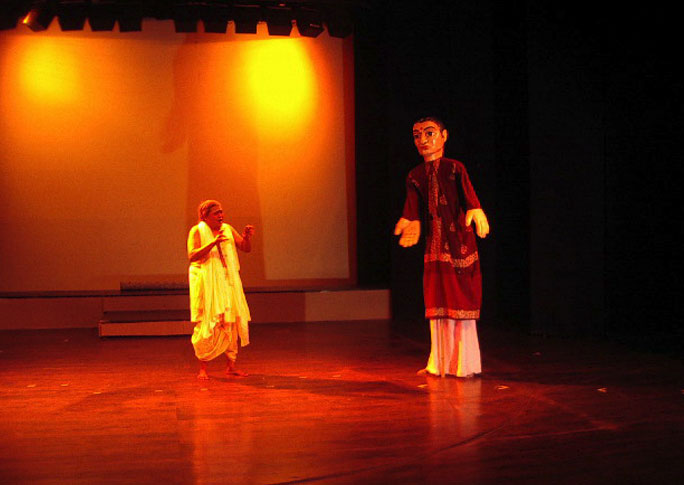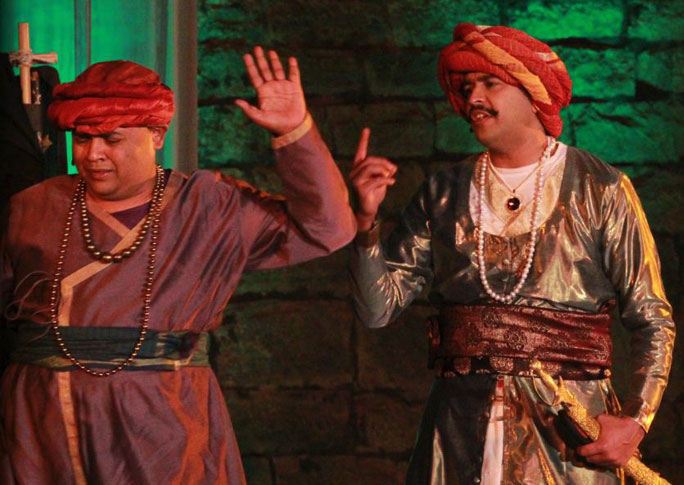Play Development
Play Development works as a cross-cutting activity through several programmes of BLT and ATA. Not surprisingly, it finds a special place in the plans of the newly created Academy. The proposal now is to revive SHORTS, with an emphasis on: A paucity of Indian plays in English.

Play Development – Cross-cutting programmes
Play Development works as a cross-cutting activity through several programmes of BLT and ATA. Not surprisingly, it finds a special place in the plans of the newly created Academy. The importance of investment in this activity is linked to ATA’s mission. It is recognised that the vibrancy of the theatre in a society is linked to the volume of writing for the theatre. As early as 1963 BLT produced an original adaptation of a Sanskrit play (Mrichhakatika) in English. It was performed specially for an Asian educational conference. The production was in line with the recognition that we were first and foremost an Indian theatre group, although performing in the English language.
A paucity of Indian plays in English
The 70s saw the beginnings of a small group within BLT giving more time to play development as a pursuit. The reason for this was the paucity of Indian plays in English. The play writing activity within BLT would only grow stronger over the years. We began with reworking available English language translations of plays in other Indian languages, making them more stage-worthy. We then took on fresh translations and adaptations of plays in regional languages. We went on to writing original scripts that were clearly Indian in character, but in the English language. Indeed, play development activity in Bangalore was to also influence English language theatre in other Indian cities.
Encouraging new initiatives
Starting from the early 80s, Bangalore had a sizeable increase in the volume of theatre activity in the English language. Because of the open developmental platform presented by BLT, along with a participative climate, many interested in the theatre began with BLT and went on to start their own groups. These new initiatives were even encouraged and aided by BLT. The decade witnessed two important developments.
- Major advances in play development. Bangalore was clearly emerging as a centre for original play writing in English. For instance, in the very first year of The Hindu awards for contemporary play scripts, two prizes went to BLT members: the First Prize for Vijay Padaki’s Credit Titles and a Special Prize for Poile Sengupta’s Mangalam
- The Deccan Herald annual theatre festival, the first of its kind in India, emerged as a major encouragement to English language theatre in Bangalore. It was also a place for new play scripts to be presented. The first major successes of Mahesh Dattani (a member of BLT) were at the Deccan Herald Festival.
BLT has maintained the conscious policy of producing Indian plays periodically—translations, adaptations, original scripts; by its own members and others.
Two programme areas in recent times have been particularly fertile for new play development:
The Children’s Theatre programme
The History of Ideas programme for public appreciation
In 2011 we should be making a start in the new play development programme for colleges and youth. This is likely to see a major increase in new scripts coming out of the Academy. In anticipation of the need, a publications programme is being put in place.
BLT – The Group
BLT or Bangalore Little Theatre is one programme division, oriented mainly to the presentation of theatre performances, maintaining its non-commercial status
ATA or Academy of Theatre Arts was initiated in 2006 as a second programme Division, to be oriented to all theatre development activity.

ATA—The Academy
The strategic planning exercise BLT undertook in 2005 led to a restructuring of Bangalore Little Theatre Foundation and the creation of the Academy of Theatre Arts.
